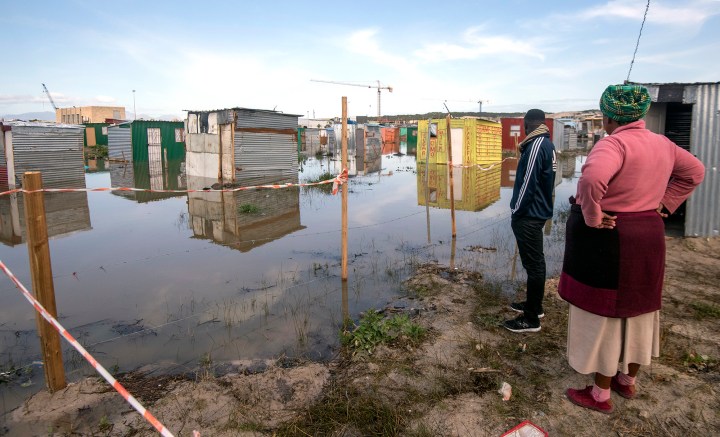THE CONVERSATION
Power cuts in South Africa are playing havoc with the country’s water system

The problems triggered by the power cuts have been made worse by the fact that the country’s water infrastructure has been deteriorating for decades. In addition, there isn’t enough water available to meet increasing demands, while pollution and allegations of corruption and misappropriation of funds have also plagued the sector.
South Africans had to deal with the worst ever series of power cuts in 2022. All in all the country lost a record 205 days of electricity due to constant breakdowns at the coal-fired power plants run by Eskom. The plants are old and have not been sufficiently maintained.
The country’s energy crisis has been escalating since April 2008, when scheduled power cuts were first implemented.
One of the biggest casualties of more than a decade of severe power outages has been the country’s water-processing and distribution networks. The most recent, and escalated, blackouts have led to water utilities in parts of the country issuing warnings about damage to water supply infrastructure and operations.
The negative effects on water supply are far-reaching. Energy and water are intertwined. The water reticulation system – the transport of water from source, the treatment of water and sewage and the distribution and delivery of water to consumers – all require electricity.
A number of cities, including Johannesburg and Nelson Mandela Bay, as well as smaller towns, have had drastic water cuts.
These experiences – as well as the growing frequency of sewage spills – have given South Africans a glimpse of what the future might hold if the energy crisis isn’t properly addressed. Water shortages and prolonged cuts in supply are likely to become increasingly common.
How it works

Water processing and distribution networks require electricity to pump water, for example, to water towers and reservoirs and then to consumers. Prolonged power cuts halt this process if no suitable back-up pumps are in place.
The same applies to water treatment plants. Prolonged power outages can cause sewage spills if no working back-up pumps are in place.
The power cuts have:
- Further damaged already dilapidated and aged water infrastructure. The City of Cape Town is a case in point. The city’s systems are in danger of collapsing unless new investments are made to avoid or limit further damage;
- Slowed or cut off water distribution and delivery as the water reticulation system requires energy (for example working pumps). Without a continued required level of pressure in a pumping-based transmission and distribution system, water can’t be distributed and delivered to the consumer. In Johannesburg, reservoirs have been unable to recover during severe power cuts. Some have reached critically low levels, leading to intermittent water supply, low water pressure and in some instances prolonged water outages; and
- Affected reticulation infrastructure. This is because sewage pump stations have broken due to old age and non-maintenance causing sewage spills. Multiple beaches have been closed in Cape Town and eThekwini municipalities due to unacceptable E. coli levels, attributed to pumps either not working or breaking, leading to sewage spills.
The problems triggered by the power cuts have been made worse by the fact that the country’s water infrastructure has been deteriorating for decades. Water losses have been increasing as a result of decaying infrastructure such as old pipes which haven’t been replaced.
The country also suffers from unsustainable water demands – there isn’t enough water available to meet increasing water demands from various sectors and consumers. Continued water pollution also decreases the amount of water that’s fit for use or consumption, contributing to water stress.
In addition, allegations of corruption and misappropriation of funds have also plagued the sector.
Some solutions?
Water utilities have recognised the increase in water disruptions and outages.
Consumers have been urged to:
- Use less water during prolonged outages to decrease the risk of limiting water supply. Decreasing water consumption assists municipalities in dealing with operational challenges such as water towers and reservoirs reaching critically low levels; and
- Ensure they have water to last through the power outage (4 hours or more).
Other steps have been taken too:
- Water restrictions have been imposed to decrease consumption, for example in the City of Johannesburg;
- The City of Johannesburg is establishing contracts to lease mobile generators, specifically for prolonged power outages; and
- The National Energy Crisis Committee, a body run out of the President’s office, has proposed various measures such as importing energy from neighbouring countries, buying excess energy from private producers and developing emergency legislation to speed up approval and development of power plants.
The country needs a clear way forward to address both the energy and water crises. These will not be solved overnight. They will require political will, making use of the knowledge and skills of experienced individuals within the various sectors, to collectively develop a realistic and clear plan. It will require specific timelines and deliverables to address both crises: energy and water. DM/OBP
Anja du Plessis, Associate Professor and Research Specialist in Water Resource Management, University of South Africa
This article is republished from The Conversation under a Creative Commons licence. Read the original article.






















 Become an Insider
Become an Insider
Comments - Please login in order to comment.